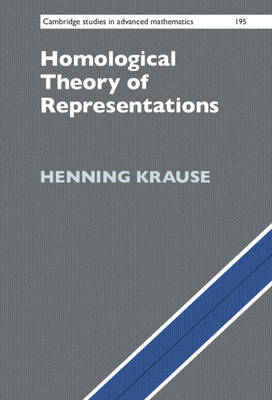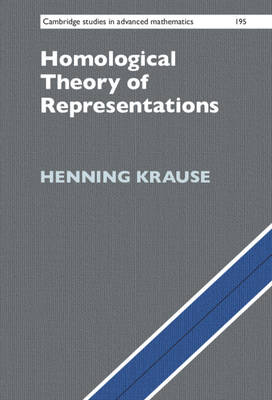
- Afhalen na 1 uur in een winkel met voorraad
- Gratis thuislevering in België vanaf € 30
- Ruim aanbod met 7 miljoen producten
- Afhalen na 1 uur in een winkel met voorraad
- Gratis thuislevering in België vanaf € 30
- Ruim aanbod met 7 miljoen producten
Zoeken
Omschrijving
Modern developments in representation theory rely heavily on homological methods. This book for advanced graduate students and researchers introduces these methods from their foundations up and discusses several landmark results that illustrate their power and beauty. Categorical foundations include abelian and derived categories, with an emphasis on localisation, spectra, and purity. The representation theoretic focus is on module categories of Artin algebras, with discussions of the representation theory of finite groups and finite quivers. Also covered are Gorenstein and quasi-hereditary algebras, including Schur algebras, which model polynomial representations of general linear groups, and the Morita theory of derived categories via tilting objects. The final part is devoted to a systematic introduction to the theory of purity for locally finitely presented categories, covering pure-injectives, definable subcategories, and Ziegler spectra. With its clear, detailed exposition of important topics in modern representation theory, many of which were unavailable in one volume until now, it deserves a place in every representation theorist's library.
Specificaties
Betrokkenen
- Auteur(s):
- Uitgeverij:
Inhoud
- Aantal bladzijden:
- 375
- Taal:
- Engels
- Reeks:
- Reeksnummer:
- nr. 195
Eigenschappen
- Productcode (EAN):
- 9781108838894
- Verschijningsdatum:
- 18/11/2021
- Uitvoering:
- Hardcover
- Formaat:
- Genaaid
- Afmetingen:
- 152 mm x 229 mm
- Gewicht:
- 925 g

Alleen bij Standaard Boekhandel
+ 230 punten op je klantenkaart van Standaard Boekhandel
Beoordelingen
We publiceren alleen reviews die voldoen aan de voorwaarden voor reviews. Bekijk onze voorwaarden voor reviews.











